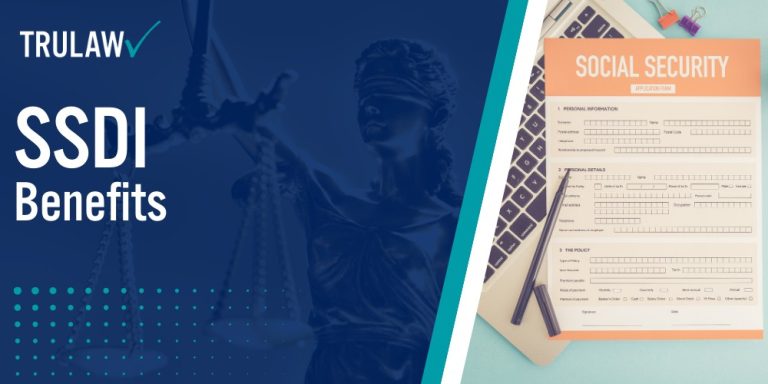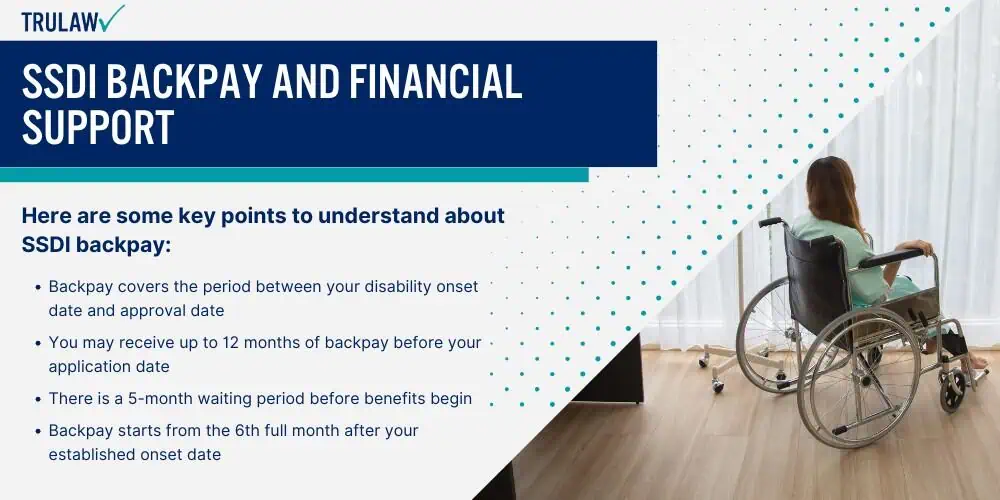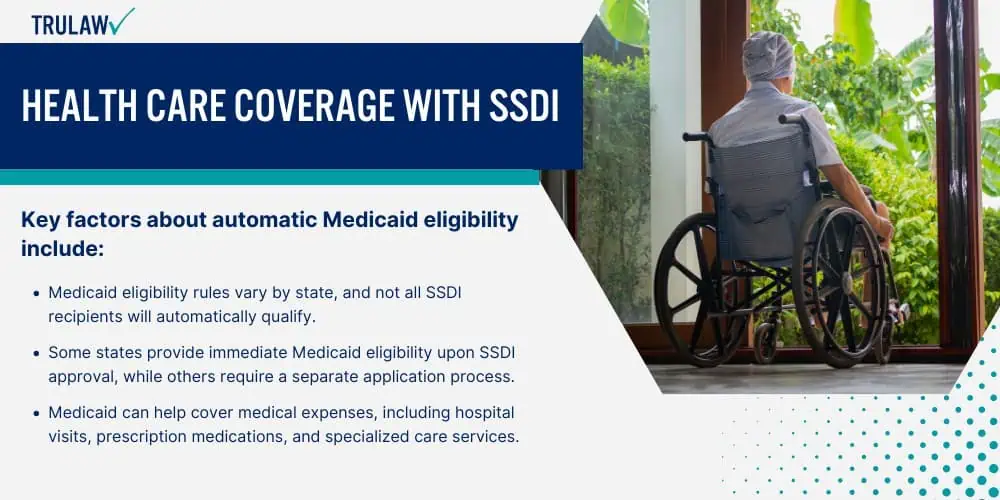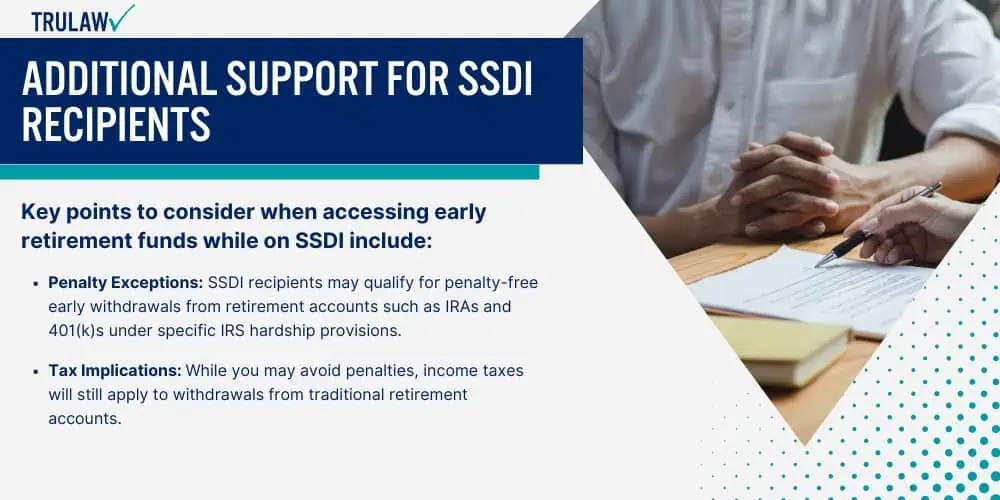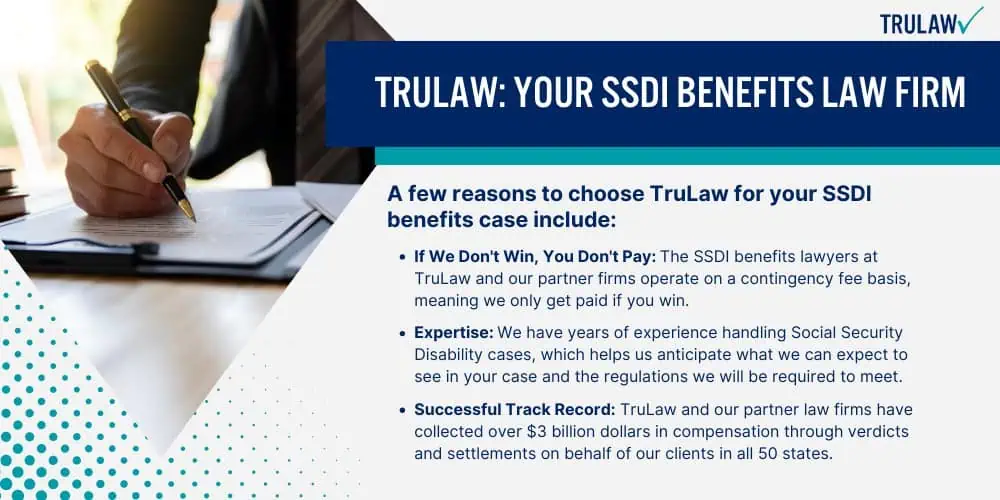To qualify for SSDI benefits, you must meet both medical and non-medical criteria established by the Social Security Administration.
These criteria ensure that benefits are provided to individuals who have contributed to the Social Security system through their work history and are unable to engage in substantial gainful activity due to a severe medical condition.
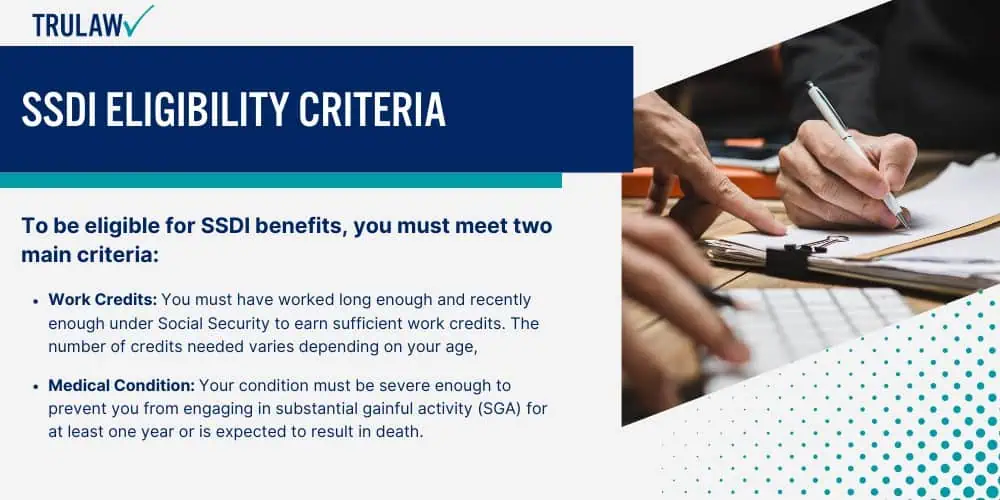
Who Qualifies for SSDI Benefits?
To be eligible for SSDI benefits, you must meet two main criteria:
- Work Credits: You must have worked long enough and recently enough under Social Security to earn sufficient work credits. The number of credits needed varies depending on your age, but generally, you need 40 credits, 20 of which were earned in the last 10 years ending with the year you became disabled.
- Medical Condition: Your condition must be severe enough to prevent you from engaging in substantial gainful activity (SGA) for at least one year or is expected to result in death.
While SSDI benefits are based on your work credits, individuals with little or no income or insufficient work history may qualify for Supplemental Security Income, a program designed to assist those with limited financial resources.
SSI benefits are available to those with limited income and resources, regardless of work history.
TruLaw can explain these requirements and assess your eligibility for SSDI benefits.
What to Expect After SSDI Approval?
Once approved for SSDI, you can expect the following:
- Monthly Benefit Payments: These typically begin the sixth full month after your established disability onset date.
- Medicare Coverage Eligibility: You become eligible for Medicare after a 24-month waiting period from the time you start receiving SSDI benefits.
- Family Benefits: Certain family members, such as your spouse or children, may also be eligible for benefits based on your work record.
- Combination of Benefits: Some individuals may qualify for SSI and SSDI, receiving benefits from both programs.
TruLaw can guide you through the post-approval process and help you understand your new benefits.
How to Appeal an SSDI Denial?
If your initial SSDI application is denied, you have the right to appeal the decision through a four-stage process:
- Reconsideration: A complete review of your claim by someone who did not take part in the first decision.
- Hearing by an Administrative Law Judge (ALJ): If reconsideration is denied, you can request a hearing before an ALJ.
- Appeals Council Review: If you disagree with the ALJ’s decision, you can request a review by the SSA’s Appeals Council.
- Federal Court Review: If the Appeals Council denies your request or you disagree with its decision, you can file a lawsuit in a federal district court.
Each stage has specific deadlines and procedures that TruLaw can guide you through, but you can also seek assistance at your local Social Security office.
They can help you gather additional medical evidence, prepare for hearings, and meet critical deadlines to maximize your chances of overturning a denial.
If you are unsure whether you qualify for SSDI or Supplemental Security Income SSI, TruLaw can help determine the best course of action.
When to Apply for SSDI Benefits?
You should apply for SSDI benefits as soon as possible if:
- You Become Disabled: Apply immediately after you become disabled and expect to be out of work for at least one year.
- You Have a Terminal Condition: Specifically if your condition is expected to result in death.
Filing your claim promptly can help avoid potential loss of benefits due to delays.
TruLaw can help you file your claim efficiently.
Common Reasons for SSDI Benefit Denials?
SSDI applications are often denied for various reasons, including:
- Insufficient Medical Evidence: Lack of adequate medical documentation to prove the severity of your disability.
- Short-Term Disability: Your condition is not expected to last at least one year or result in death.
- Ability to Engage in Substantial Gainful Activity: The SSA believes you can perform work despite your condition.
- Non-Compliance with Treatment: Failing to follow prescribed medical treatments without a valid reason.
- Lack of Cooperation: Not providing requested information or failing to attend scheduled medical examinations.
SSDI attorneys can review your application before submission, identify potential weaknesses, and help you gather comprehensive medical evidence to strengthen your claim and improve your chances of approval.
